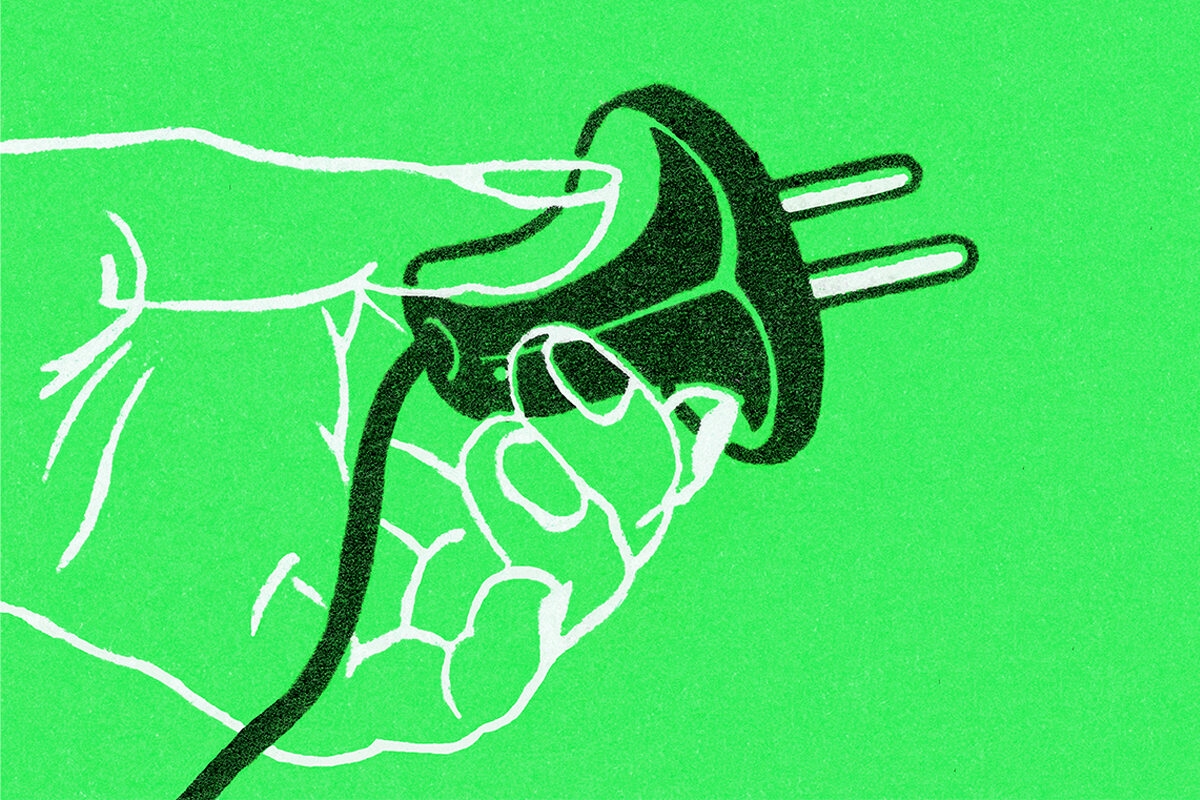There’s no denying it, we’re living in some wild times right now. From an environmental perspective, at least, there are some silver linings: air pollution has decreased from less automobile and airplane travel, for example, and wildlife has reclaimed some of their former habitats.
However, as we fight the spread of coronavirus, waste has increased in many other ways as a result. We’re throwing away tons of gloves and plastic masks, for starters, and we’re not using reusable bags at grocery stores anymore. Gone are the days when everyone makes their own vinegar-and-water cleaning solutions; we’re all relying upon some seriously harsh chemicals to keep our homes germ-free.
Still, as we pull through the Covid-19 global crisis together, there are some very easy steps we can make to tread more lightly on the earth. Yes, we are all spending a lot of time at home now — which means that, in addition to baking sourdough and Kondo-ing your closets, it’s the perfect time to give your place an “ecological makeover.”
Giving your home an environmental tuneup isn’t just the right thing to do from a humanitarian and ecological point of view — it’s the Jewish thing to do, too. Jews have long had the personal responsibility for being “stewards” for the environment, whether it be taking care of animals and nature, not wasting food or water, or being mindful of our ecological footprint. This quote from the Midrash says it all: “When God created the first man He took him and showed him all the trees of the Garden of Eden and said to him ‘See My works, how beautiful and praiseworthy they are. And everything that I created, I created it for you. Be careful not to spoil or destroy My world — for if you do, there will be nobody after you to repair it.’”
Small children often bring along a lot of collateral damage, from diapers to food waste to heaps of plastic toys. Fortunately, there are a ton of easy things to do that can reduce your family’s and your home’s carbon footprint — and they can be done right now, whether you’re staying at home or not. Read on for some super-simple eco-friendly things you and your family can do at home, today.
1. Turn off the lights
It’s not terribly complicated to be more conscious about our energy usage even if the prospect seems daunting — it’s as easy as turning off the lights when you’re not in the room. You can have your kids make reminder signs near the light switches that lights should be turned off if no one is currently in that room.
2. Unplug small appliances when they aren’t in use
For instance, if you have a coffee maker plugged in that only gets used once daily- these can be unplugged throughout the day to conserve energy. Kids can have a “scavenger hunt” where they find all the appliances in the house that are plugged in, but infrequently used, and make a list of things to keep unplugged.
3. Reduce take-out trash
Yes, it’s great to support local restaurants during these uncertain times. But takeout or delivery does come with a lot of waste, so a good way to reduce that is to place one very large order, and have leftovers for at least another meal or two. This creates less plastic waste than ordering a bunch of smaller orders. If you’re getting takeout for a picnic, bring along your own utensils and water bottles with you so you don’t need to ask for one-use utensils and cups.
4. Swap paper towels for reusables
If you’re using a ton of paper towels — another item often in short supply during the pandemic — it might be good to investigate with your kids how many trees get used to make paper towels, and switch over to rags or bamboo “paper” towels (which, speaking from personal experience, are often far more absorbent than paper). Just rinse them off after cleaning up and throw them in with the rest of the laundry. Same thing goes for paper napkins; it’s a pretty easy swap to go to cloth napkins at the dinner table.
5. Plant something
Now is the perfect time for a window box or patio herb garden! Kids love to help grow plants, it’s a fantastic way to teach them about various herbs and spices, and it’s one less thing to worry about getting at the grocery store.
6. Go secondhand for toys and books
If you’re looking for some new toys and books to keep things fresh at home, ask around on platforms like Nextdoor or local Facebook groups to see if anyone’s destashing or wants to do a swap. It’s a win-win: no one spends any money and the kids get some variety. It’s easy to disinfect or clean most toys and books, or simply leave them outdoors for a few days.
7. Ditch disposable diapering
If you’ve got a baby or a toddler who isn’t potty trained yet, now is a fantastic time to start replacing some of the one-use options associated with diapering with reusable items. Cloth diapering is for sure the most eco-friendly diapering option out there, and it’s a thousand times simpler than back in our own infant days.
If you’re not up for making the switch, there are other smaller but environmentally-sound swaps: You can using cloth wipes at home instead of one-use wet wipes, or rely upon reusable cloth wet bags to stash dirty diapers instead of plastic bags (and bonus: wetbags often contain diaper stink better than a traditional pail).
Not only will these swaps be thoughtful choices, you’ll find that with virtually every swap to reusables, you’ll save money. Plus, they’ll spare you some headaches, too, as you don’t have to worry about making yet another drugstore run, or whether or not your online order will be delayed several days.
Good luck with all of your endeavors to help make the world an environmentally healthier place to live! It can seem daunting, but small changes truly make a difference.
Header image design by Grace Yagel. Photo by CSA Images/Getty Images.








